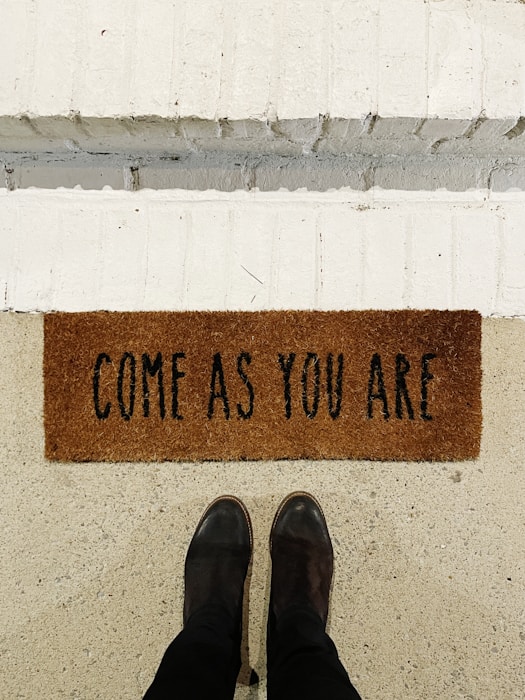Getting Started
Welcome, we're happy you're here!We are currently operating a private community and have opened up early access to new applicants. Please review the steps below to get started.Are you a brand? Partner with us!Contact us directly to discuss your unique project requirements.


Step 1: Register for Early Access
TurboVirtual is looking for experienced and committed collectors, creators, and community supporters to help drive our mission forward.Collector
Private minting access is open to early adopter collectors. Apply to gain access to our DAPPs.Creator
Partner with us on new and exciting Web3 projects or collaborate on existing collections.Supporter
Support our mission and projects through community and project involvement.
Step 2: Platform Access
After approval you will be invited to join our platforms.a.
b.
c.
d.
Collaborate
Participate in our community to discuss all things Web3. We're better together.Brand Engagement
TurboVirtual's member community can help you design, build, and deploy web3 experiences. We operate similar to a modern agency except for the fact that we are led by our code and community members on the blockchain as a digital-first organization.Brands & Non-Profits
Drive brand awareness through impact campaigns and integrated web3 experiences.Athletes & Celebrities
Supplement your existing publicity programs or drive a for your favorite foundation.Strategic Partners
We are looking to team up with other communities to launch new and exciting projects.Frequently Asked QuestionsWhat is TurboVirtual?
TurboVirtual is a community focused on delivering Web3 projects for its' members and partners. Our core focus is to align community resources with our partners to monetize web3 technology including NFTs and the metaverse.
What is a DAO?
A DAO (Decetralized Autonomous Organization) is governed by code and community members. TurboVirtual is a private, hybrid model, DAO managed by its' members and partners. Our DAO contract runs on Gnosis Chain (xDAI) via Colony.
What is Colony?
Colony.io is our DAO platform provider. They provide the tools necessary for us to manage our DAO on the blockchain.
Do you use Discord for collaboration?
No. After research and testing, we have identified that Discord is not a safe platform for our community. We leverage a secure, enterprise-grade collaboration server called Mattermost.
Do have a ERC-20 token?
Yes, but our token is "unbacked and private" at the moment and is used for DAO governance. It is NOT available for purchase on public exchanges or marketplaces. In the near future, we may decide to release our token into the metaverse.
Can I trust your community members?
Our community is backed by established business professionals with more than 15 years of experience. Our community is currently by application only and each community member is fully vetted before access is provided.
Which NFT marketplaces do you work with?
We primarily work with Rarible, OpenSea, and SolSea. Our founding members are Verified on several marketplaces including Rarible.
What is Gnosis Chain (xDAI)?
The Gnosis Chain is a stable payments EVM (Ethereum Virtual Machine) blockchain designed for fast and inexpensive transactions. It uses xDAI as its payments stablecoin.
What payments do you accept?
We accept Fiat and Cryptocurrency payments. All payments are managed by our DAO treasury and can be made only using your credit card or wallet. Some forms of payment may require a KYC (know your customer) onboarding procedure to verify your identity.
How do I hire your community to provide services?
We operate much like a modern agency. You can contact us via email to discuss your project and request a quote. The major difference is that we are a digital-first organization. Our projects are sourced and developed by our community.
Do I need a "wallet" to become a member?
Yes. All community members are required to have a wallet installed that uses the Wallet Connect integration. Metamask is a p wallet option.
Can I use Coinbase Wallet?
No, but you can import your Coinbase Wallet (address) to Metamask or another approved wallet using your secret key.*
- Use Metamask: https://decentralizedcreator.com/import-coinbase-wallet-to-metamask/
- Use TrustWallet: https://community.trustwallet.com/t/migrate-from-coinbase-wallet-to-trust-wallet/88
* Warning: This FAQ is for advanced users and is provided for reference only. Use at your own risk. Do not share your secret keys with anyone.
Which blockchains do you work with?
Our community is blockchain agnostic, but we tend to focus our efforts on trending networks including Ethereum, Polygon, Binance, Solana, Flow, Tezos, and Gnosis.
Do you plan to donate to a community fund?
Yes. We will establish a Community Fund on Endaoment.org where we will deposit a portion of all sales. Grants to non-profits will be voted on by the community.
Do I have to pay Gas Fees when purchasing an NFT?
Yes, minting NFTs requires transaction fees. If you are concerned about the cost of “gas fees” please consider minting on our Polygon or Binance marketplaces where fees have been significantly reduced.
Why aren’t some of your collections listed on OpenSea and Rarible?
We use "lazy minting". After our early adopter community mints a portion of each collection, we will open secondary markets like OpenSea and Rarible.
What is KYC and why is it required for some types of payments?
By law, Know Your Customer (“KYC”) is required for financial institutions to establish the legitimacy of a customer’s identity and identify risk factors. KYC procedures help prevent identity theft, money laundering, financial fraud, terrorism financing, and other financial crimes. Our payment processor requires KYC.
TurboVirtual is a community focused on delivering Web3 projects for its' members and partners. Our core focus is to align community resources with our partners to monetize web3 technology including NFTs and the metaverse.
What is a DAO?
A DAO (Decetralized Autonomous Organization) is governed by code and community members. TurboVirtual is a private, hybrid model, DAO managed by its' members and partners. Our DAO contract runs on Gnosis Chain (xDAI) via Colony.
What is Colony?
Colony.io is our DAO platform provider. They provide the tools necessary for us to manage our DAO on the blockchain.
Do you use Discord for collaboration?
No. After research and testing, we have identified that Discord is not a safe platform for our community. We leverage a secure, enterprise-grade collaboration server called Mattermost.
Do have a ERC-20 token?
Yes, but our token is "unbacked and private" at the moment and is used for DAO governance. It is NOT available for purchase on public exchanges or marketplaces. In the near future, we may decide to release our token into the metaverse.
Can I trust your community members?
Our community is backed by established business professionals with more than 15 years of experience. Our community is currently by application only and each community member is fully vetted before access is provided.
Which NFT marketplaces do you work with?
We primarily work with Rarible, OpenSea, and SolSea. Our founding members are Verified on several marketplaces including Rarible.
What is Gnosis Chain (xDAI)?
The Gnosis Chain is a stable payments EVM (Ethereum Virtual Machine) blockchain designed for fast and inexpensive transactions. It uses xDAI as its payments stablecoin.
What payments do you accept?
We accept Fiat and Cryptocurrency payments. All payments are managed by our DAO treasury and can be made only using your credit card or wallet. Some forms of payment may require a KYC (know your customer) onboarding procedure to verify your identity.
How do I hire your community to provide services?
We operate much like a modern agency. You can contact us via email to discuss your project and request a quote. The major difference is that we are a digital-first organization. Our projects are sourced and developed by our community.
Do I need a "wallet" to become a member?
Yes. All community members are required to have a wallet installed that uses the Wallet Connect integration. Metamask is a p wallet option.
Can I use Coinbase Wallet?
No, but you can import your Coinbase Wallet (address) to Metamask or another approved wallet using your secret key.*
- Use Metamask: https://decentralizedcreator.com/import-coinbase-wallet-to-metamask/
- Use TrustWallet: https://community.trustwallet.com/t/migrate-from-coinbase-wallet-to-trust-wallet/88
* Warning: This FAQ is for advanced users and is provided for reference only. Use at your own risk. Do not share your secret keys with anyone.
Which blockchains do you work with?
Our community is blockchain agnostic, but we tend to focus our efforts on trending networks including Ethereum, Polygon, Binance, Solana, Flow, Tezos, and Gnosis.
Do you plan to donate to a community fund?
Yes. We will establish a Community Fund on Endaoment.org where we will deposit a portion of all sales. Grants to non-profits will be voted on by the community.
Do I have to pay Gas Fees when purchasing an NFT?
Yes, minting NFTs requires transaction fees. If you are concerned about the cost of “gas fees” please consider minting on our Polygon or Binance marketplaces where fees have been significantly reduced.
Why aren’t some of your collections listed on OpenSea and Rarible?
We use "lazy minting". After our early adopter community mints a portion of each collection, we will open secondary markets like OpenSea and Rarible.
What is KYC and why is it required for some types of payments?
By law, Know Your Customer (“KYC”) is required for financial institutions to establish the legitimacy of a customer’s identity and identify risk factors. KYC procedures help prevent identity theft, money laundering, financial fraud, terrorism financing, and other financial crimes. Our payment processor requires KYC.


